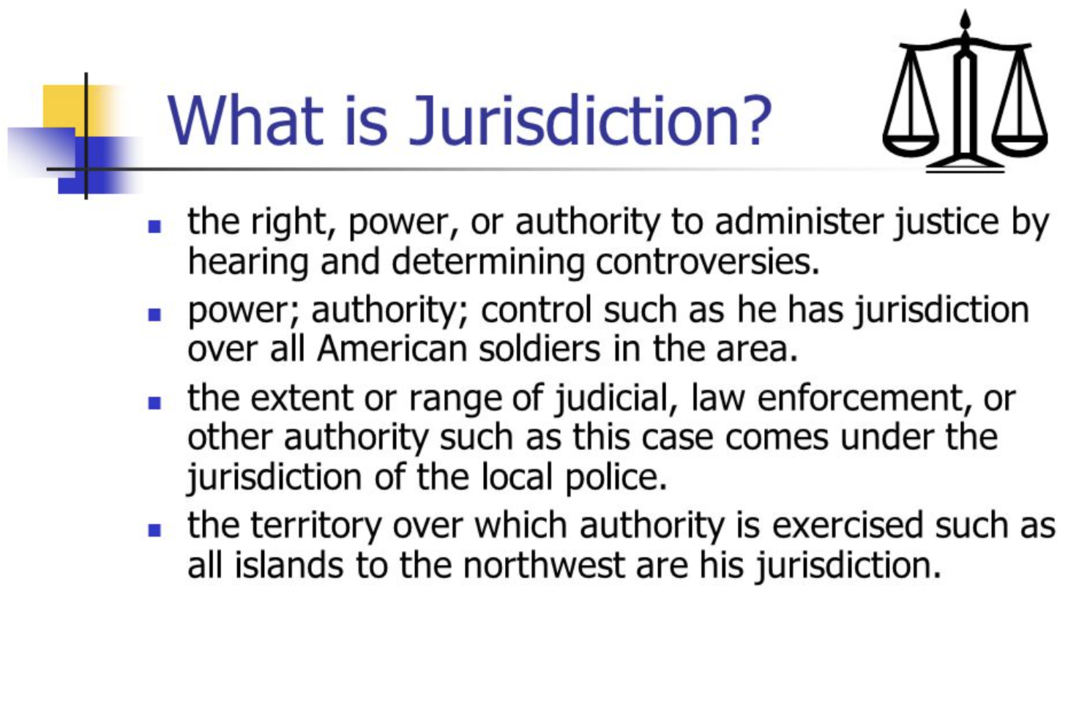Jurisdictional Maze: Navigating Legal Boundaries
3 min read
Navigating Legal Boundaries:
In the complex world of law, the concept of jurisdiction forms the very foundation of legal order, delineating the boundaries within which legal authority operates. This exploration delves into the intricacies of jurisdiction, unraveling its multifaceted nature and the critical role it plays in the administration of justice.
Understanding Jurisdiction: Defining Legal Reach:
At its core, jurisdiction refers to the authority of a legal body to hear and decide on a particular matter. It establishes the limits within which a court or other legal entity can exercise its power. Understanding the nuances of jurisdiction is crucial for individuals, businesses, and legal practitioners navigating the legal landscape.
Types of Jurisdiction: A Multifaceted Framework:
Jurisdiction takes on various forms, each serving a specific purpose in the legal realm. Personal jurisdiction focuses on the authority over individuals involved in a case, while subject matter jurisdiction pertains to the type of case a court can hear. Geographical considerations also play a role in determining jurisdiction.
Territorial Jurisdiction: Drawing Geographical Lines:
Territorial jurisdiction is perhaps the most intuitive form, as it refers to the geographical boundaries within which a court has the authority to adjudicate. This aspect of jurisdiction ensures that legal matters are heard by the appropriate court within a specific geographic area, avoiding conflicts of legal authority.
Challenges in Cyberspace: Navigating Digital Jurisdiction:
In the age of the internet, the concept of jurisdiction encounters new challenges. Cyberspace transcends traditional geographical boundaries, raising questions about the jurisdictional authority over online activities. Courts grapple with defining the reach of their authority in the vast and borderless realm of the digital world.
Subject Matter Jurisdiction: Tailoring Legal Authority:
Subject matter jurisdiction delves into the nature of the legal issue at hand. Different courts have varying scopes of subject matter jurisdiction, ensuring that specialized matters are heard by courts with the expertise to address them. This tailored approach enhances the efficiency and effectiveness of the legal system.
Personal Jurisdiction: Authority Over Individuals:
Personal jurisdiction revolves around the authority a court has over individuals involved in a case. This aspect ensures that defendants have a connection to the jurisdiction where the case is filed, preventing unfair legal proceedings. Determining personal jurisdiction requires a careful analysis of the parties’ ties to the jurisdiction.
Global Considerations: International Jurisdictional Complexities:
In an interconnected world, legal matters often transcend national borders. International jurisdictional complexities arise when legal issues involve parties from different countries. International law and treaties play a role in establishing frameworks for resolving cross-border legal disputes.
Jurisdictional Challenges in Multinational Cases: Forum Shopping and Harmonization:
Multinational cases bring forth challenges related to forum shopping, where parties seek favorable jurisdictions for their cases. Efforts toward jurisdictional harmonization aim to create consistent legal standards across multiple jurisdictions, mitigating the potential for forum shopping and ensuring fair and equitable legal proceedings.
Jurisdictional Arbitration: Alternative Dispute Resolution:
In response to the challenges posed by complex jurisdictional issues, many parties turn to arbitration. Jurisdictional arbitration allows disputing parties to choose a neutral forum and agree on the governing law for their dispute. This alternative dispute resolution method provides flexibility and efficiency in resolving international legal conflicts.
Explore Jurisdiction Further:
For those seeking a deeper understanding of jurisdiction, Jurisdiction offers comprehensive insights into the principles, challenges, and global perspectives surrounding this fundamental concept. Dive into the complexities of legal boundaries, the evolving nature of jurisdiction, and its pivotal role in shaping the administration of justice.





